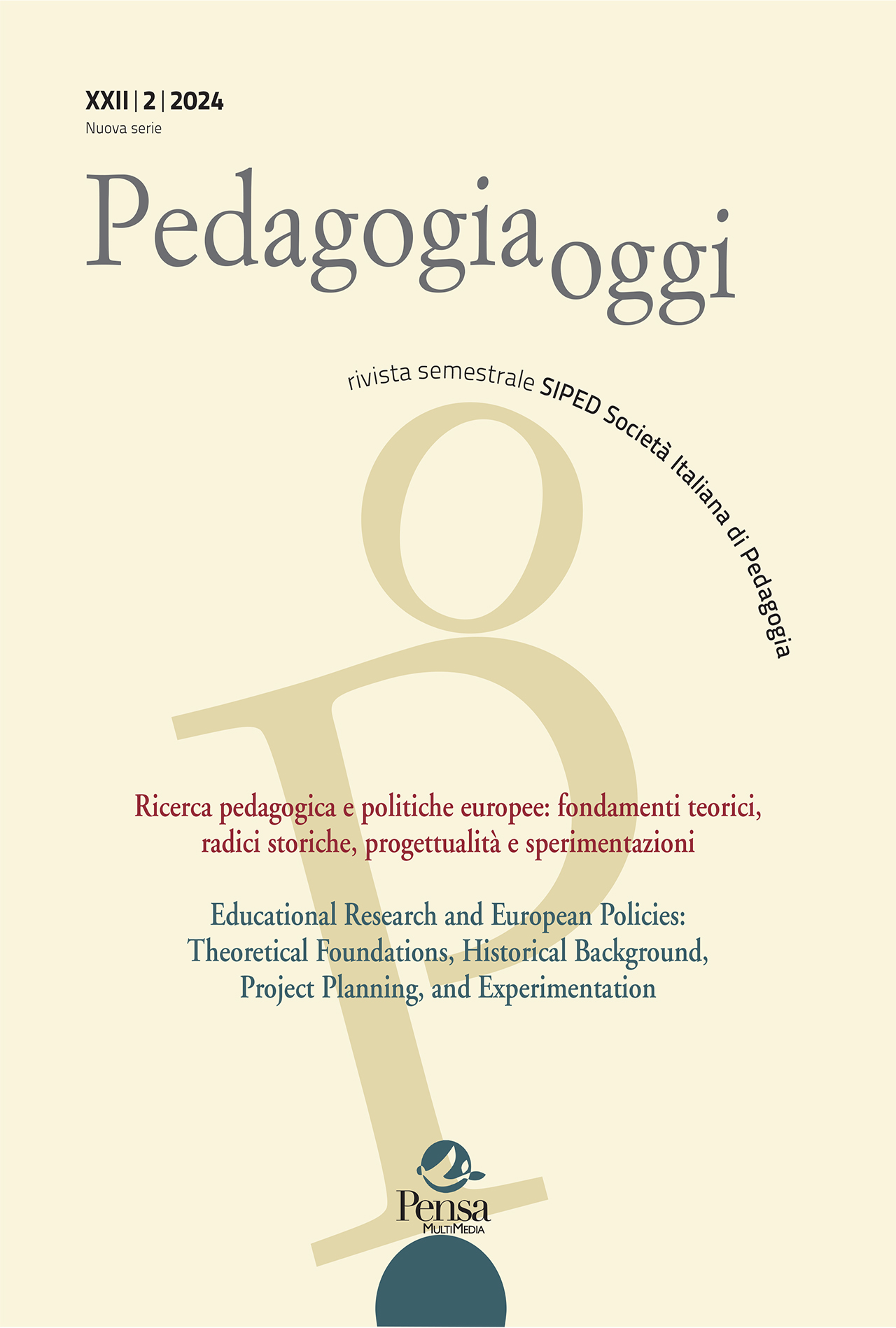Education for Active and Global Citizenship in European Documents: What Role for Ethics? A Critical Analysis of Data from a CGT research
DOI:
https://doi.org/10.7346/PO-022024-41Keywords:
Active and Global Citizenship;, European Policies, Emancipation, Etichs of Ignorance, Constructivist Grounded TheoryAbstract
The European Union is increasingly devoting attention to the field of citizenship education, which serves as a
platform for examining the ethical dimensions of education. The integration of civic competences among key
competences (EU, 2006), the identification of citizenship competence as a defining characteristic of a responsible
citizen (EU, 2018), and the emphasis on promoting critical thinking (EU, 2003, 2006) illustrate the EU’s commitment
to embedding values and ethics within the educational discourse. However, there is a notable absence
of a clearly defined ethical framework that could provide a coherent reference point for the entire curriculum
(Baldacci, 2020) and highlight its vital role in promoting responsible citizenship (Westheimer, Kahne, 2003).
This study, developed within the context of CGT research on the relationship between education and ethics,
aims to offer a critical analysis of key European documents on education for citizenship. The concept of the ethics of ignorance (Park, 2023) is introduced as a particularly pertinent aspect of this debate.
Downloads
Published
Issue
Section
License
Copyright (c) 2025 Marco Iori

This work is licensed under a Creative Commons Attribution 4.0 International License.




